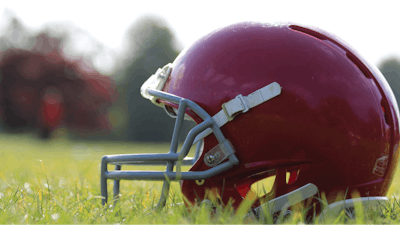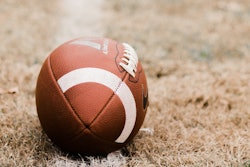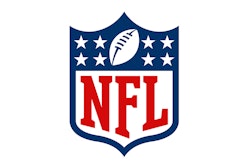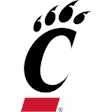
Between 1.7 million and 3 million sports- and recreation-related concussions happen each year, according to the University of Pittsburgh Medical Center. Around 300,000 of those will occur as a part of football activities. Roughly half of all concussions go unreported or undetected, and two in 10 high school athletes who play contact sports — including soccer and lacrosse — will get a concussion this year.
Those are particularly troubling statistics for student-athletes and their concerned parents. Thankfully, coaches, athletes, parents and athletic trainers are increasingly more aware of and better informed about the serious effects head injuries can have on a young athlete’s physical and mental wellbeing — now and years from now.
Loudoun County (Va.) Public Schools have taken those numbers seriously in hopes that the district can provide its students with the treatment to ensure they don’t suffer long-term consequences should they experience a head injury. In September, the district announced that Inova, a nonprofit healthcare provider in Northern Virginia, will provide every LCPS high school student-athlete with a baseline concussion test for the 2023-24 school year. That means that by the end of the adamic year, 14,000 student-athletes will have received free neurocognitive baseline testing prior to activities, with the ultimate goal of improving concussion management for all student-athletes.
Testing the baseline
According to Inova’s Dr. Sabrina Jennings, Loudon County had been working with its athletic trainers for some time on concussion mitigation and detection protocols, which eventually led to the broader baseline testing initiative. Jennings says the testing is important for a number of reasons and for both the student-athlete, as well as the doctor treating them.
“Baseline concussion testing helps anyone treating a concussion assess whether or not an athlete is back to their baseline and ready to go back out into play,” Jennings explains. “Whether it’s contact or non-contact force, that baseline helps us to compare what that specific individual athlete would look like healthy when they’re going through the clearance procedures after a head injury.”
Jennings says the baseline testing isn’t necessarily about getting an athlete back on the field faster, but rather ensuring that once they do return to play, they’ve entirely healed from their injury. “And having each person do their individual baseline takes out a lot of the guesswork for us as to whether that athlete is ready,” Jennings says.
The testing is designed to assess a student-athlete’s cognitive function prior to the season. If a student-athlete sustains a concussion, this “snapshot” of cognitive performance can be compared to that person’s post-injury cognitive test scores, rather than normative data, to better determine improvement and/or deterioration during recovery.
ImPACT testing is usually administered by an athletic trainer and is done on a computer in roughly 20 minutes. Inova has built into the testing some validation measures to ensure athletes don’t “sandbag” the results — that is, purposefully underperform during baseline testing to artificially minimize cognitive disparities in later post-concussion comparisons, thus hastening the athlete’s return to play.
“We try to mitigate the sandbagging,” explains Jennings. “So, it keeps track of athletes reaction time to certain aspects of the test, it keeps track of their motor speed, whether or not they’re accurately responding to different portions of the test. All that really helps to flag for any invalid responding to avoid sandbagging.”
Jennings says that while baseline concussion testing has been around for a while, and Inova has administered the test for individual student-athletes over the years at a price of $25 per test, the scale of the partnership with LCPS alone raises awareness around best practices for concussion detection and treatment.
Return to learn
Concussion mitigation efforts — new rules, better helmets and padding, advancements in turf technology — continue to have positive impact, but the reality is that concussions are going to happen regardless of best intentions. That’s why broad, standardized detection and post-injury care are so important.
To that end, the Virginia Board of Education has put into place a statewide Return to Learn policy, which provides academic accommodations for student-athletes who sustain a concussion. Prompted in part by that policy, the LCPS Athletic Training Program has constructed a comprehensive protocol to facilitate communication and education around post-concussion care.
Once the athletic trainer discovers that a student-athlete has concussive symptoms, they will perform a full evaluation, which may consist of the following:
- Sideline evaluation (if applicable)
- Thorough history review (previous concussions, family/medical history, etc.)
- ImPACT test (computerized neurocognitive exam)
- Vestibular/Ocular Motor Screening (VOMS)
- Communication with student-athlete, parents/guardians, coaches, other healthcare professionals and/or administration
When a student-athlete has been diagnosed with a suspected concussion, they or their parent/guardian have 24 hours to contact their athletic trainer about their current status. They also have 48 hours to be evaluated by an appropriate licensed health care provider (certified athletic trainer, physician, physician assistant, osteopath, neuropsychologist or nurse practitioner). The purpose of this timeline is to make sure that a management plan is started as soon as possible to provide the student-athlete with the care they need.
After the evaluation, the student-athlete is placed in an appropriate stage dictating which academic accommodations they require. The plan is then sent to the appropriate counselor and teachers so that they know which accommodations the student-athletes require. During this stage, LCPS encourages teachers to contact the athletic trainer, school nurse and counselor to provide feedback as to what they are seeing in the classroom. Likewise, student-athletes are instructed to check in with the athletic trainer, school nurse and counselor semi-daily for up-to-date information about their physical and cognitive status.
As the student-athlete’s physical and cognitive health improves, they progress through stages until they reach stage Green, at which point they are returned to full academic participation. The school nurse then sends an email to teachers two weeks after the student-athlete has been cleared, asking if they are still receiving accommodations or do not appear to have returned to baseline.
The very existence of programs like the one implemented at LCPS is evidence of true progress in how head injuries are handled today compared to just 10 years ago.
Jennings agrees that headway has been made, but she says there’s more that can be done. “There’s a growing awareness around concussions, and a lot of schools now are educating their coaches on detection and mitigation,” she says. “So, I do think that schools and athletes and coaches are doing a better job of identifying head injuries. For so long, people grew up thinking that, you know, you just rung your bell, and maybe some athletes won’t report hitting their head because they think it’s fine or that it won’t count as a concussion. There’s still a little bit of that, but we’re really trying to change the conversation, and there’s still a ways to go.”





































